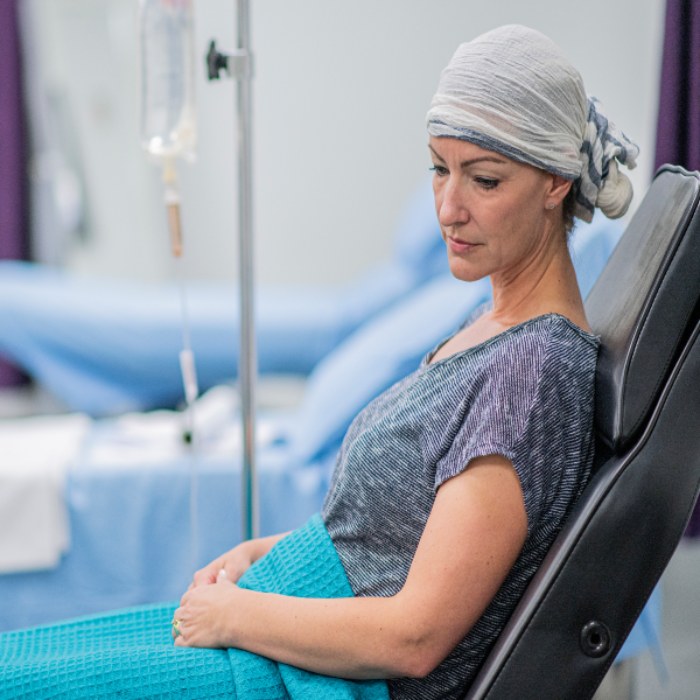Ependymoma Treatment on Long Island
Comprehensive Ependymoma Treatment & Care
Ependymoma is a rare type of tumor in the brain or spinal cord that requires precise diagnosis and treatment. At Dr. Salvatore Palumbo’s Long Island practice, we specialize in providing advanced neurosurgical care for complex conditions like ependymomas. Understanding this condition is the first step toward effective management and recovery. Contact us today to schedule a consultation if you’re experiencing ependymoma symptoms.

What Is an Ependymoma?
An ependymoma is a tumor that arises from ependymal cells lining the ventricles of the brain and the central canal of the spinal cord. These tumors, though rare, can occur in people of all ages, with certain types being more common in children than adults. Ependymomas can exert pressure on surrounding structures, resulting in a range of symptoms and potential challenges depending on their size and location.
Symptoms of Ependymoma
Ependymoma symptoms vary based on the location of the tumor. The most common ependymoma brain tumor symptoms include:
- Recurrent headaches
- Balance problems
- Difficulty walking
- Nausea and vomiting
- Balance issues
- Seizures
- Weakness on one side of the body
- Vision or hearing problems
- Trouble speaking
- Confusion or irritability
Common symptoms of a spinal tumor include:
- Bowel and bladder issues
- Back pain or neck pain
- Weakness in the limbs
Causes and Risk Factors of Ependymomas
There is no single known cause of ependymomas. Researchers believe they typically occur due to genetic mutations in ependymal cells. While rare, individuals with certain genetic syndromes may have a slightly increased risk of developing these tumors.
Types of Ependymomas
Ependymomas are classified based on their location and grade. The most common types of ependymomas include:
- Subependymoma (Grade I): A slow-growing, benign tumor usually found in adults.
- Myxopapillary Ependymoma (Grade I): Typically occurs in the lower spine.
- Classic Ependymoma (Grade II): Can occur in both children and adults, often found in the brain or spine.
- Anaplastic Ependymoma (Grade III): A more aggressive form requiring intensive treatment.
Diagnosing of an Ependymoma
We begin diagnosing an ependymoma with a consultation. After we determine it might be the problem, we can perform the following methods:
- MRI or CT scans identify the tumor’s size and location.
- Biopsy to confirm the diagnosis and tumor grade.
- Neurological exams are performed to assess how the tumor impacts brain or spinal cord function.
Treatment Options for Ependymomas
The treatment approach for ependymomas often depends on the location, size, and grade of the tumor. Each treatment plan is carefully crafted to address the patient’s needs while preserving quality of life. Common ependymoma treatments include:
- Surgery: The primary treatment, aiming to remove as much of the tumor as possible. Dr. Salvatore Palumbo specializes in advanced, minimally invasive microsurgical techniques to achieve optimal outcomes.
- Radiation Therapy: Often used after surgery to target remaining tumor cells.
- Chemotherapy: Occasionally used, particularly in pediatric cases.
Prognosis and Follow-Up Care
While the prognosis varies based on factors like the tumor’s grade and location, many patients experience significant recovery with appropriate treatment. Regular follow-ups are essential to monitor for recurrence and manage long-term side effects of treatment. At Dr. Salvatore Palumbo’s practice, patient care doesn’t end after surgery. We focus on ongoing support and follow-up care tailored to ensure the best possible outcomes for our patients.
Choose Dr. Salvatore Palumbo
Dr. Salvatore Palumbo, has advanced expertise in treating brain and spinal tumors, including ependymomas. Recognized as one of the best neurosurgeons in America, Dr. Salvatore Palumbo brings a wealth of knowledge and personal dedication to each patient’s care. His minimally invasive and precise surgical techniques ensure that patients receive the highest quality of treatment for optimal recovery.is your partner in sustainable relief. With a legacy of excellence, Dr. Salvatore Palumbo is proudly recognized as one of the leading doctors in America. Our high-volume neurosurgical practice specializes in helping patients reclaim their quality of life by combining award-winning techniques with personalized care.
Contact Us for Ependymoma Diagnosis & Treatment
At Dr. Salvatore Palumbo’s Long Island practice, we understand that a diagnosis of ependymoma can be overwhelming. That’s why our team is committed to offering compassionate, state-of-the-art care designed to address your unique needs. From accurate diagnosis to life-enhancing treatment and follow-up care, we are with you every step of the way. If you or a loved one has been diagnosed with ependymoma, don’t wait. Contact our office now to schedule an appointment with Dr. Salvatore Palumbo and benefit from expert neurosurgical care.
